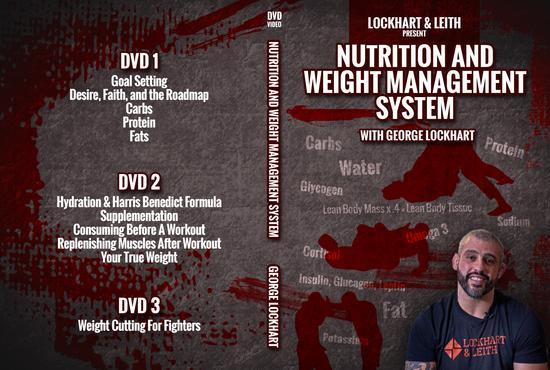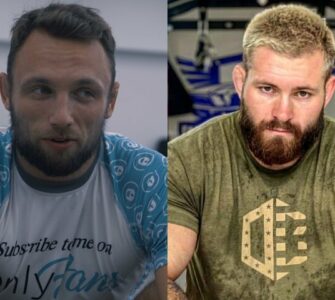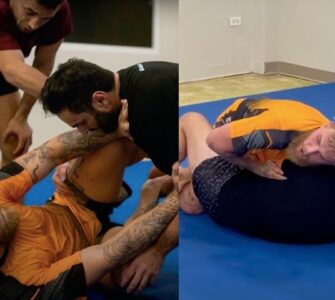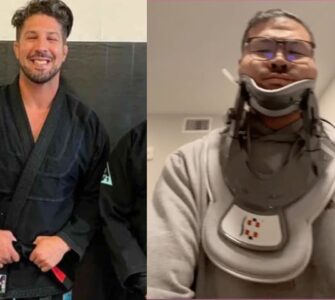Written by Reid Reale BHlthSc(Hons), MDiet – Sports Dietitian and BJJ black belt combatsportsnutrition.com. Reid works with many of the best judo, boxing, taekwondo and wrestling athletes in Australia, including commonwealth games and Olympic athletes. Reid Reale has released a great new book Combat Sports Nutrition, which covers what every grappler needs to know about sports nutrition, from how proteins carbs and fats affect your body to cutting weight properly.
Without further delay, I present five of the most common mistakes i see fighters making with their diets. Are you making any of these mistakes?
1. Not keeping up with hydration requirements:
By far, the most common dietary issue I see with grappler’s and striker’s alike is; most are not adequately hydrated day to day. Sure there comes a time when we want to dehydrate ourselves in order to drop that last bit of weight before stepping on the scales, but this can be achieved in the final 24-48 hours pre weigh in. At all other times it is crucial to stay well hydrated, in order to maximise strength, aerobic and anaerobic endurance, maintain adequate cognitive performance and reduce the risk of injury. Drink before, during and after training, as well as with and in between meals. A 70 kg athlete may need up to 4 L of fluid per day on a rest day! It is not uncommon for a fighter to lose 2+ kg of fluid in a single training session. This needs to be replaced in addition to an athlete’s ‘basic’ daily fluid requirements.
2. Training on an empty stomach:
If you are the kind of fighter who gets up early in the morning to get that extra weights, sprint or grappling session in whilst everyone else is sleeping, its important to fuel this session as you likely haven’t consumed any energy for 8+ hours. If you think it is too early for a meal or you don’t have enough time before training to let the food settle, try consuming a quickly digesting carbohydrate or a liquid meal. Sports drinks, meal replacements, fruit, white bread with honey or jam or milk are all good choices.
Check out this filling, flexible breakfast idea which can be made either high protein, low calorie to help maintain muscle mass whilst dropping fat, or high protein high carb for gaining muscle/ fuelling your training:
The lower calorie version is only 303 calories with 29 g of protein!
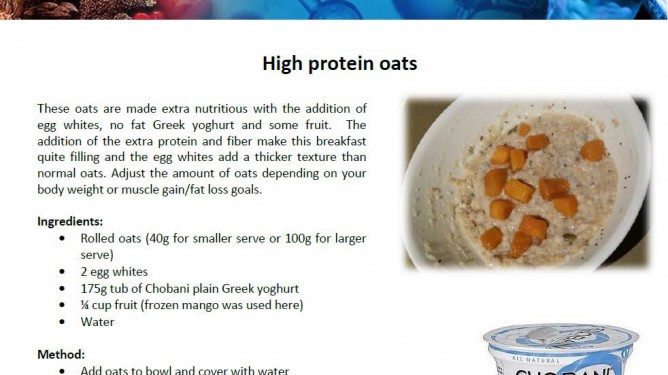
3. Not eating after training:
Many athletes, who train late, go home after training and head to bed shortly after, or they may not consume a meal after a day time session for a few hours afterwards. Consuming carbohydrates and protein as soon as possible following training is vital in order to refuel muscle glycogen, repair broken down proteins and start the muscle building process as well as to fuel the adaptation process – after all, you are training in order to adapt and ultimately improve, right?
4. Avoiding carbohydrates:
The whole low-carb craze has caught on, not only in weight loss and celebrity circles, but for a great deal of athletes too, and fighters are no exception. Let me make this clear, you absolutely 100% require carbohydrates in order to perform at your best. In fact, the brain and central nervous system run exclusively off carbohydrates (except for in the exceptional circumstance of ketosis, which I’ll talk about in another post) and high intensity exercise (or anaerobic exercise) requires carbohydrates for fuel also. The word anaerobic itself means ‘without oxygen’. As fat requires oxygen to be metabolised, it cannot be broken down and burnt fast enough to fuel high intensity exercise, thus if you are not consuming adequate carbs you will not be performing optimally when it comes time to ‘push the envelope’. Now you definitely can eat too much carbohydrates and this can be detrimental to weight management, so it’s all about consuming the right amount of carbs for your training.
5. Replacing real food with supplements and so called ‘superfoods’:
These days, whether it’s because of aggressive supplement marketing, superfood fads or the influence of crazy podcast celebrities, people seem to think the only way to get ahead is to consume nutrients in the form of pills, powders, bars or juices. The reality is that the basis of any fighter’s health and optimal performance is simple; training, recovery and diet – and the basis of your diet should be consuming adequate amounts of carbohydrates, protein, fats, vitamins and minerals. As opposed to supplements like energy bars, anti-oxidant pills and protein powder, simple meals like a lean meat/vegetable stir fry with rice or a bowl of yoghurt and fruit, provide protein, carbs, vitamins, minerals and fibre – in a convenient and tasty form. This will help keep you feeling full which will in turn prevent you from over eating, make it easier to drop body fat and maintain your weight closer to fighting weight.
If you are not sure where to start and how to eat well, check out our newest and best-selling diet product from George Lockhart. Lockhart is one of the UFC’s leading nutritionist and has helped some of the best professional athletes in the world lose weight and doing it in a healthy fashion. Lockhart is the real deal and this product can literally change your life. It is an E-Book and a DVD. This is also available as a digital download below.


